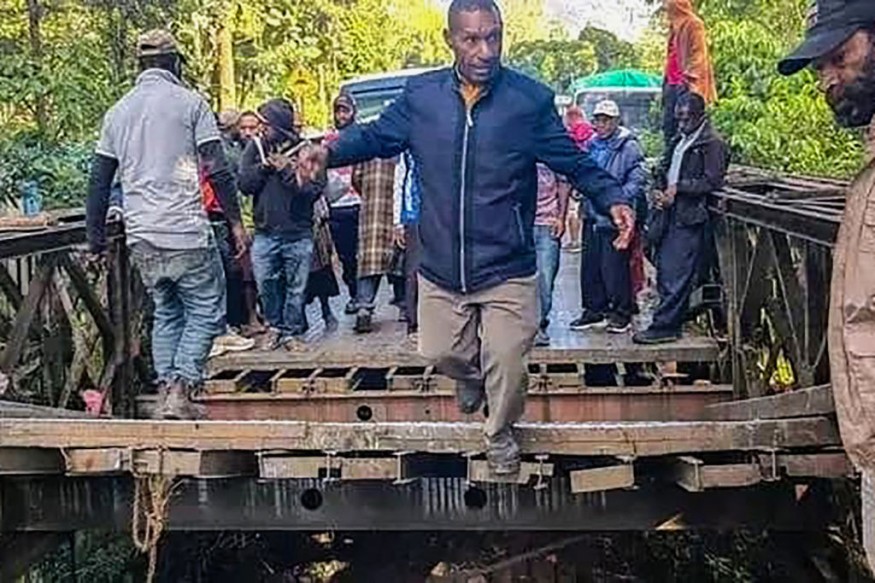
The National Disaster Center of Papua New Guinea fears that the massive landslide that occurred last week may have buried up to 2,000 people.
2,000 People Buried
The official figure is about three times that of the United Nation estimated 670 people died in the landslide in the rugged interior of the island nation in the South Pacific.
As of Monday, local authorities had only retrieved the remains of five people. The reason behind the revision of the Sunday-reported total of six was not immediately apparent.
The acting director of the nation's National Disaster Center, Luseta Laso Mana, claimed that the landslide in Yambali village, Enga province, "buried more than 2,000 people alive" and caused "major destruction" in a letter to the UN resident coordinator dated Sunday.
Due to tough conditions on the ground, such as the village's remote position, a lack of telecommunications, and tribal fighting throughout the province, it is impossible to determine the true extent of the tragedy. As a result, military escorts are required for foreign rescue workers and assistance convoys.
In a conflict between two warring tribes in Enga in February, at least 26 tribal warriors and mercenaries were slain, along with an unknown number of onlookers.
The difficulties in estimating the number of possible deaths are further compounded by the national government's lack of accurate census statistics.
The population of Papua New Guinea is projected by the government to be approximately 10 million, while UN research estimated in 2022 that it might be as high as 17 million, based on data including satellite photos of roof tops.
The country has not conducted a precise census in many years.
Landslide Area Very Unstable
The landslide buried a 200-meter (650-foot) section of the province's main route behind rubble that was 6 to 8 meters (20 to 26 feet) deep, making it a significant challenge for relief workers.
Since Friday, relief workers have been sporadically entering the remote northern area, but officials warned that there was little chance of discovering survivors.
People are continuing to work their way through the rocks, causing more to fall as the landslide continues.
"The landslide area is very unstable. When we're up there, we're regularly hearing big explosions where the mountain is, there are still rocks and debris coming down," Enga province disaster committee chairperson Sandis Tsaka
With a combined population of between 4,500 and 8,000, the disaster zone and a nearby area have declared a state of emergency, however, not everyone has been given the order to leave just yet.
Rescue and relief efforts are being hampered, according to Serhan Aktoprak, the head of the International Organization for Migration in PNG. According to him, there were still rocks falling from the mountain, dirt splitting, and water running beneath the rubble.
He added that survivors have been reluctant to consent to the use of large gear in rescue operations because they do not want the bodies of their relatives to be damaged.
International relief organizations stated that despite the region's remoteness, they are trying to provide food, water, and evacuation shelters.
Related Article : Papua New Guinea Deadly Landslides: Many Homes Buried, as Rescue Operation Continues
© 2025 NatureWorldNews.com All rights reserved. Do not reproduce without permission.





